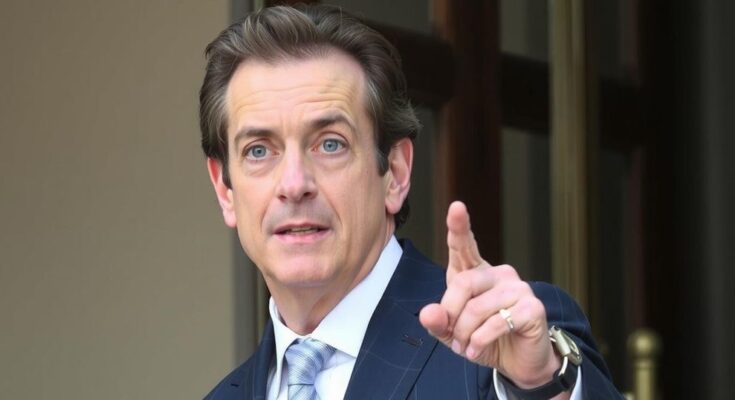Nicolas Sarkozy, former French President, is on trial in Paris over allegations of receiving illicit funds from Muammar Gaddafi to finance his 2007 election campaign. He has denied the charges, claiming they are motivated by political animosity. The trial continues until April 10, with potential consequences including a prison sentence of up to ten years if found guilty.
Former French President Nicolas Sarkozy has officially commenced his trial in Paris, facing allegations of receiving illicit financial support from the late Libyan leader Muammar Gaddafi to fund his successful 2007 presidential campaign. Prosecutors assert that in return for this substantial funding, Sarkozy pledged assistance to Gaddafi in rehabilitating his tarnished image among Western nations. Throughout the proceedings, Sarkozy has consistently denied any wrongdoing, attributing the charges to adversaries seeking to undermine him politically.
The investigation into these claims began in 2013, prompted by Saif al-Islam Gaddafi’s accusations that Sarkozy had accepted millions in campaign funds from his father. Subsequently, Lebanese businessman Ziad Takieddine stated he possesses documented evidence indicating that Sarkozy’s campaign received substantial financial backing from Libya, claiming payments totaling approximately €50 million continued even after Sarkozy took office. Alongside Sarkozy, twelve co-defendants face similar charges, all firmly contesting the allegations against them.
Additionally, Carla Bruni-Sarkozy, the former First Lady and prominent Italian singer, has been charged with concealing evidence related to the case and collaborating with others to commit fraudulent activities, both charges which she also denies. Since leaving office in 2012, Sarkozy has been embroiled in multiple legal challenges, including a recent conviction for overspending during his 2012 re-election campaign, leading to a one-year sentence, half of which is suspended.
In a historic ruling in 2021, Sarkozy was sentenced for attempting to bribe a judge, marking him as the first former French president to receive a custodial sentence. Recently, the Paris appeals court permitted Sarkozy to serve his sentence at home, fitted with an electronic monitoring device, though he was not wearing it during his court appearance as the specifics of that condition remain unresolved. The ongoing trial regarding the Libya connection is poised to last until April 10, with the possibility that if found guilty, Sarkozy could face a prison sentence of up to ten years.
The trial of Nicolas Sarkozy centers on allegations that he accepted funds from Muammar Gaddafi to bolster his election campaign in 2007. This situation highlights the complex interplay between international relations and electoral politics, particularly how financial support from foreign leaders can influence domestic elections. The public’s interest is magnified by Sarkozy’s previous high-profile status as a leader who was actively engaged in international diplomacy, especially concerning Libya. The ongoing legal challenges faced by Sarkozy illuminate issues regarding political accountability and the rule of law in France following an era of significant political turbulence.
In summary, Nicolas Sarkozy’s trial marks a significant development in the realm of political corruption allegations in France. The serious nature of the charges, which involve international financial dealings and alleged complicity with a controversial foreign leader, underscores the ongoing scrutiny of political figures post-tenure. The outcome of this trial, along with Sarkozy’s other legal entanglements, will likely have lasting implications on the perceptions of political integrity and justice within France.
Original Source: www.bbc.com




